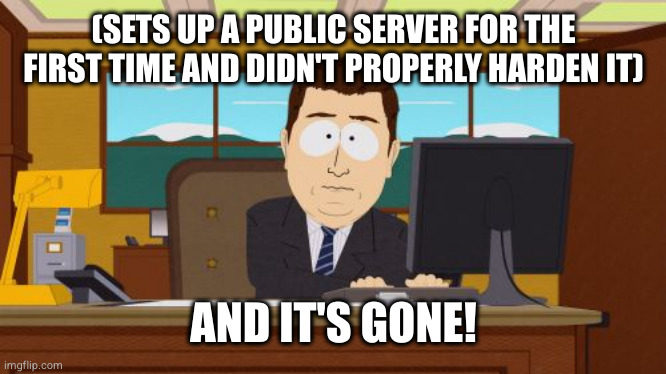this post was submitted on 10 Feb 2025
856 points (99.4% liked)
linuxmemes
26686 readers
1200 users here now
Hint: :q!
Sister communities:
Community rules (click to expand)
1. Follow the site-wide rules
- Instance-wide TOS: https://legal.lemmy.world/tos/
- Lemmy code of conduct: https://join-lemmy.org/docs/code_of_conduct.html
2. Be civil
3. Post Linux-related content
sudo in Windows.4. No recent reposts
5. 🇬🇧 Language/язык/Sprache
6. (NEW!) Regarding public figures
We all have our opinions, and certain public figures can be divisive. Keep in mind that this is a community for memes and light-hearted fun, not for airing grievances or leveling accusations.Please report posts and comments that break these rules!
Important: never execute code or follow advice that you don't understand or can't verify, especially here. The word of the day is credibility. This is a meme community -- even the most helpful comments might just be shitposts that can damage your system. Be aware, be smart, don't remove France.
founded 2 years ago
MODERATORS
you are viewing a single comment's thread
view the rest of the comments
view the rest of the comments

Although disabling the root user is a good part of security, leaving it enabled should not alone cause you to get compromised. If it did, you were either running a very old version of OpenSSH with a known flaw, or, your chosen root password was very simple.
The latter. It was autogenerated by the VPS hosting service and I didn't think about it.
It should be a serious red flag that your VPS host is generating root passwords simple enough to get quickly hacked.
I'm pretty sure they assumed if you bought their service, you have the competency to properly set it up.
And I proved them wrong.